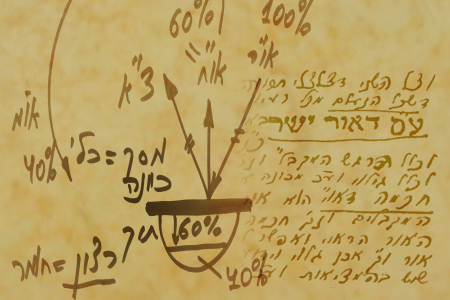Numbers, 33:1-36:13
This Week’s Torah Portion | June 30 – July 6, 2013 – Tammuz 22-28, 5773
In A Nutshell
The portion, Masaei (Journeys) describes the journeys of the children of Israel, the stops where they parked in the desert, and their final preparations to enter the land of Israel. The portion details several commandments, such as the obliteration of idol worship, cities of refuge, the rules regarding involuntary manslaughter, appointing presidents to the tribes under the leadership of Joshua, son of Nun, and Elazar the Priest, dedicating cities for the people of the tribe of Levi, and a description of the boundaries of the land.
The portion ends with the continuation of the story of the daughters of Zelophehad, the fear of the tribe of Menashe that they would marry men from other tribes, thus causing the tribe of Menashe to lose its lots. In consequence, Moses issues a warrant prohibiting the daughters of Zelophehad from marrying men of other tribes, as well as other prohibitions that concern marriages of people from different tribes.
![]()
Commentary by Dr. Michael Laitman
The portion is a preparation to enter the land of Israel. At this stage we begin the inner work, rising to a degree where our will to receive connects with the upper force. Here we discover the upper force because we are living inside that desire.
It is written that the land of Israel is the land where the Creator is present from the beginning of the year to its end. That is, He is always in the land of Israel—in a desire that is aiming entirely to bestow, Yashar El (straight to God). A person discovers the upper force within that desire and is in Dvekut (adhesion) with it. This is the intention of the land of Israel.
From this we can learn to what extent we are not in the spiritual land of Israel, but in the corporeal one. Kabbalists tell us that we have been given the opportunity to return to the corporeal (physical) land of Israel so as to rise to the spiritual one. For this purpose, we must all be together, united as a family, “as one man with one heart,” as in “All of Israel are friends” and as in “love your neighbor as yourself.” We have connected on the stipulation of mutual guarantee, and only if we meet this criterion will we enter the land of Israel.
